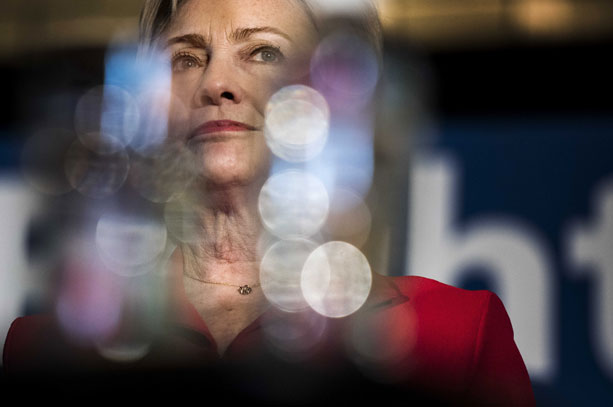
Many elections redefine political parties.
The rise of
These so-called neoconservatives ("new conservatives") grew tired of liberals' perceived laxity about fighting the Cold War. In foreign policy, the neoconservatives were best known for supporting idealistic nation-building abroad. They distrusted the rise of what would become political correctness and ever more government. They worried about violent crime and higher taxes. So decades ago, these Democrats joined the
Since the 1980s, the neoconservatives have made up the elite of their newly adopted party -- despite their unease with the conservative orthodoxy of border enforcement, fierce resistance to gun control and opposition to abortion.
Now, a few neoconservatives are reinventing themselves again and returning to the Democrats to support
They believe that socialist
Neoliberals -- along with some members of the conservative establishment -- consider
The 2016 neoliberals were never very culturally conservative. So they are certainly not bothered by Clinton's pro-choice advocacy. They do not mind her promotion of gun control, and they are open to global warming agendas and soft multiculturalism. They see Clinton as preferable to Trump and his unapologetic nationalism. Many of the neoliberal converts supported the Obama-Clinton intervention in
Neoliberals also find themselves more in the same class -- defined by income, education and cultural tastes -- with Clinton's elite Democrats than with Trump's new army of lower-middle-class cultural and economic populists.
Neoliberals get along well with the small elite class that fuels the Clinton machine -- similarly wealthy, well-educated grandees on
Democrats no longer win over the middle classes, who lack the culture of the elite and the romance of the distant and subsidized poor.
Will the old neoconservatives/new neoliberals who support Clinton instead of Trump ever come back to the
It depends on three unknowns.
If Trump loses big, the neoliberals will remind Republican Trumpers that they had warned them about their populist folly. The neolibs will seek to expunge populists and to rebuild a defeated
They may re-emerge as old Republican neoconservatives who will promote unfettered free trade, democracy-building abroad and "comprehensive immigration reform" while downplaying social issues.
If Trump squeaks by, then the neoliberals certainly will be orphaned for good. As apostates, they will not be welcomed back as neoconservatives by the Republican winners, nor will they be seen by Democrats as converts having any further political value.
But if Trump loses by a point or two, the neoliberals will likely stay with the winning Clinton team. They will claim some credit for helping her just get over the top -- even as they are blamed by irate Trumpers as traitors for sabotaging what otherwise could have been a winning new Republican strategy.
Apart from opportunistic careerism, the subtext to this realignment is a larger issue of culture, education and class. A mostly urban, highly educated and high-income globalized elite often shares more cultural and political affinities with their counterparts on the other side of the aisle than they do with the lower-middle and working classes of their own parties.
Just as
Clinton versus Trump is a war of
Culture, not just politics, is rapidly destroying -- but also rebuilding -- traditional political parties.
Comment by clicking here.
Victor Davis Hanson, a classicist and military historian, is a senior fellow at the Hoover Institution and a recipient of the 2007 National Humanities Medal.



 Contact The Editor
Contact The Editor
 Articles By This Author
Articles By This Author